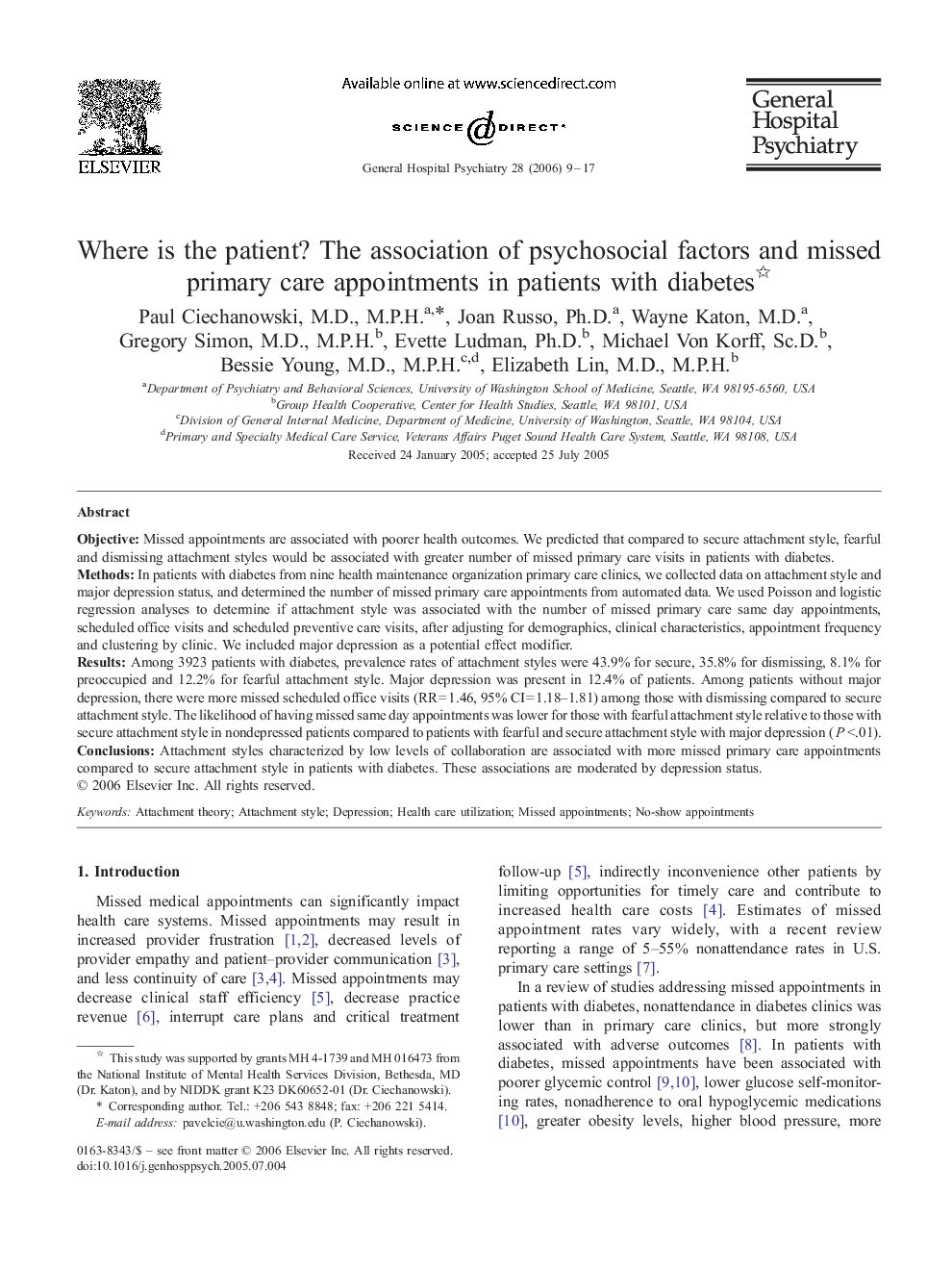| Article ID | Journal | Published Year | Pages | File Type |
|---|---|---|---|---|
| 3238572 | General Hospital Psychiatry | 2006 | 9 Pages |
ObjectiveMissed appointments are associated with poorer health outcomes. We predicted that compared to secure attachment style, fearful and dismissing attachment styles would be associated with greater number of missed primary care visits in patients with diabetes.MethodsIn patients with diabetes from nine health maintenance organization primary care clinics, we collected data on attachment style and major depression status, and determined the number of missed primary care appointments from automated data. We used Poisson and logistic regression analyses to determine if attachment style was associated with the number of missed primary care same day appointments, scheduled office visits and scheduled preventive care visits, after adjusting for demographics, clinical characteristics, appointment frequency and clustering by clinic. We included major depression as a potential effect modifier.ResultsAmong 3923 patients with diabetes, prevalence rates of attachment styles were 43.9% for secure, 35.8% for dismissing, 8.1% for preoccupied and 12.2% for fearful attachment style. Major depression was present in 12.4% of patients. Among patients without major depression, there were more missed scheduled office visits (RR=1.46, 95% CI=1.18–1.81) among those with dismissing compared to secure attachment style. The likelihood of having missed same day appointments was lower for those with fearful attachment style relative to those with secure attachment style in nondepressed patients compared to patients with fearful and secure attachment style with major depression (P<.01).ConclusionsAttachment styles characterized by low levels of collaboration are associated with more missed primary care appointments compared to secure attachment style in patients with diabetes. These associations are moderated by depression status.
